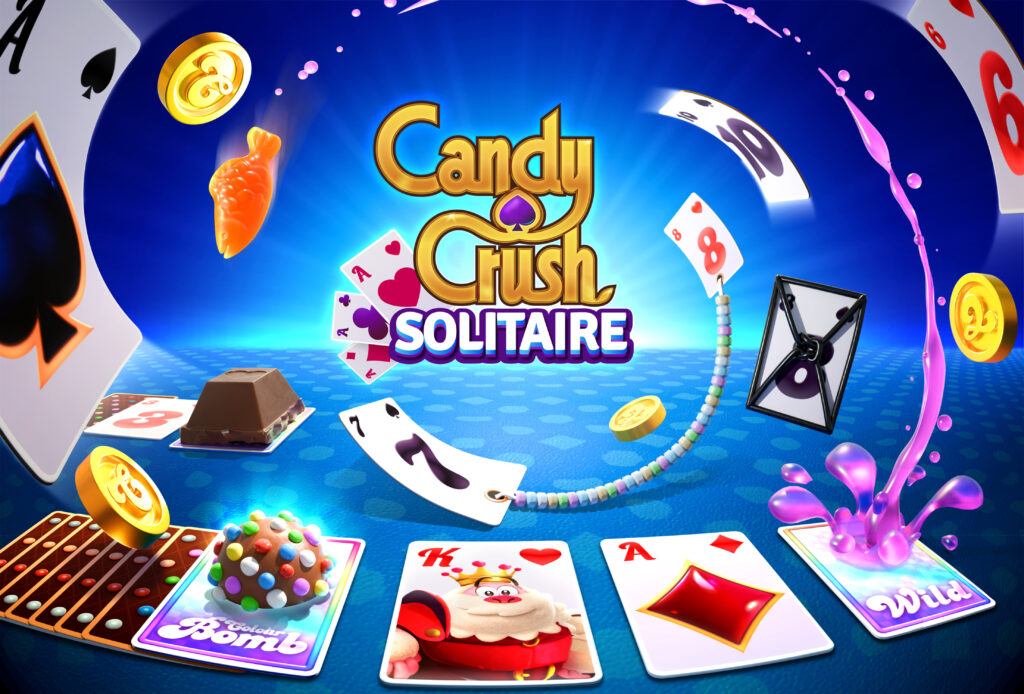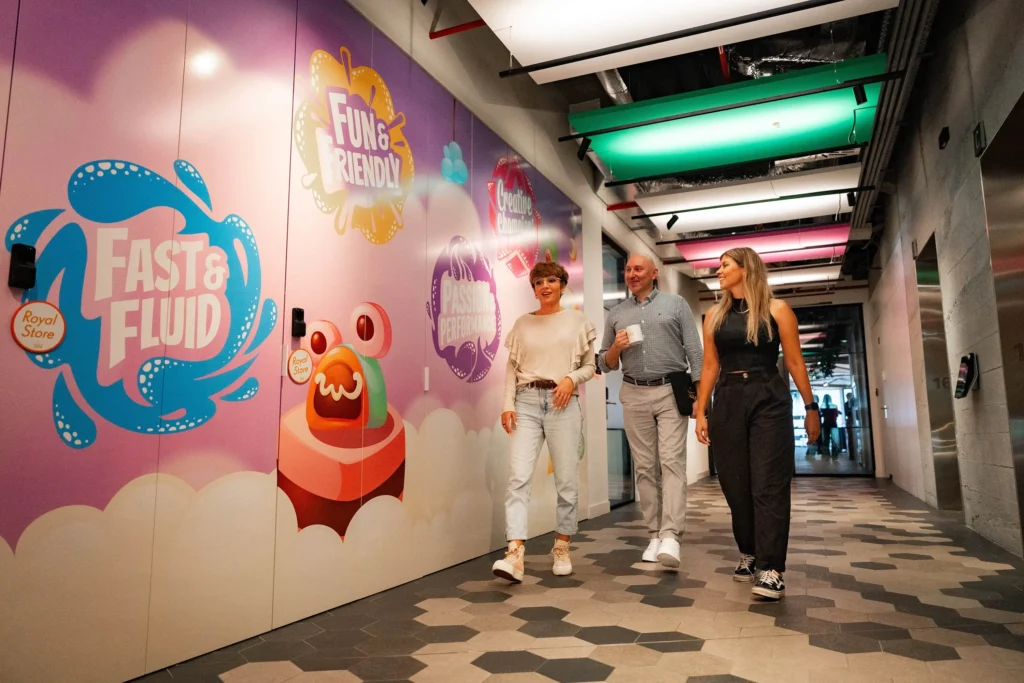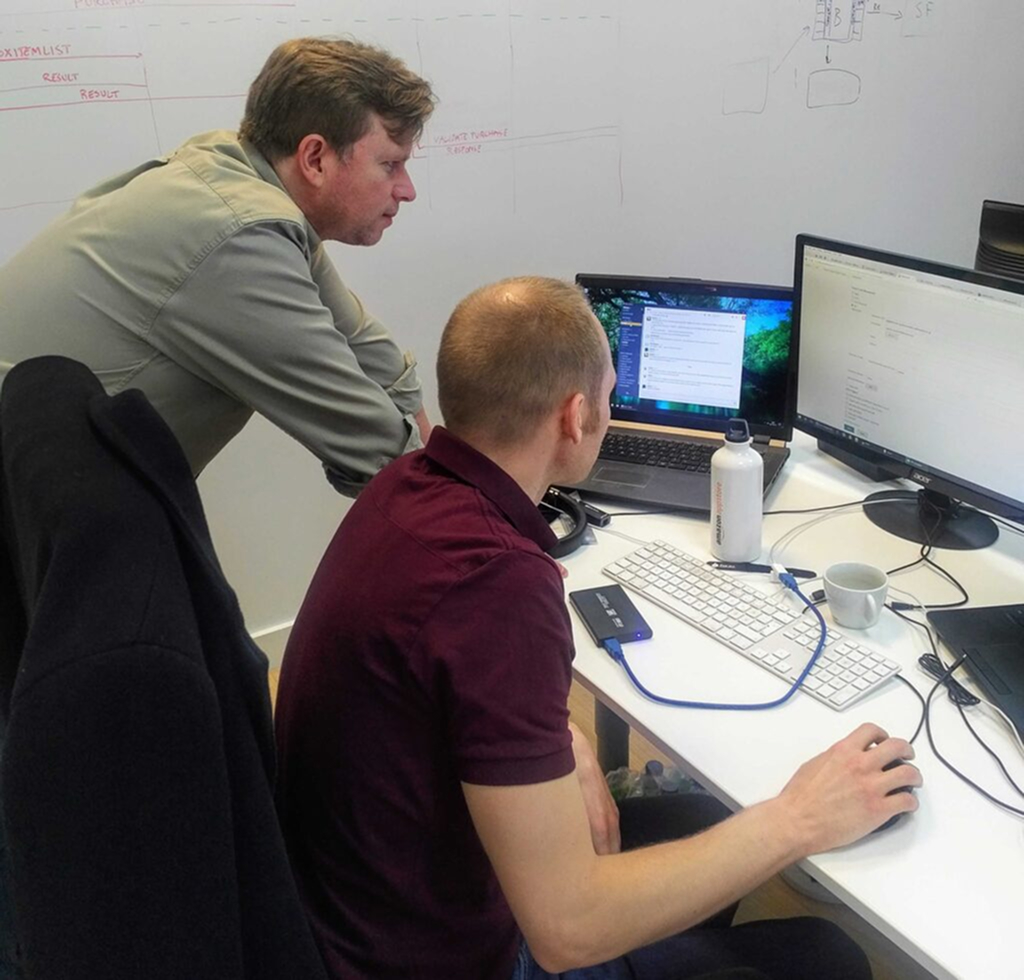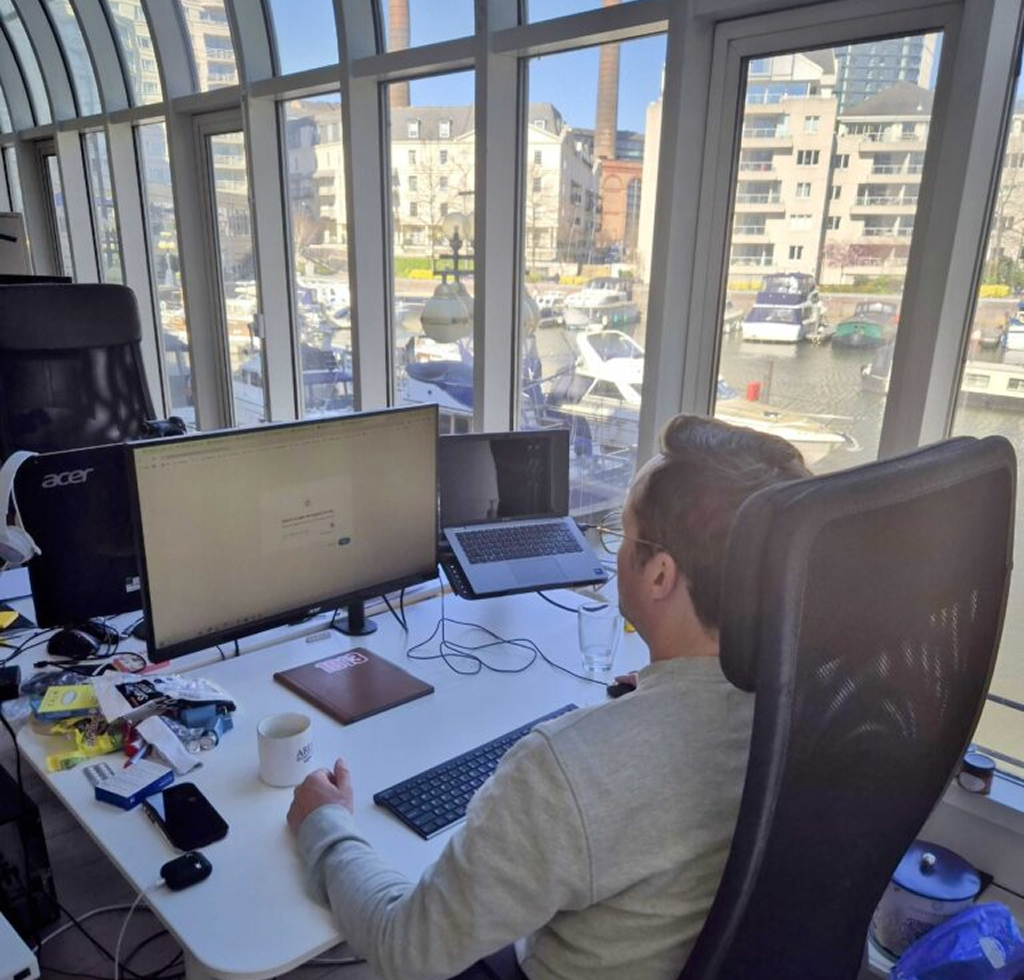As King launches Candy Crush Solitaire on Apple and Google, Flexion ensures it is simultaneously available on five other app stores – a world first. Here is the story of how it happened.

It’s 9am (CET) on 6 February 2025 and, despite the calming organic architecture of King’s Barcelona offices, the atmosphere is electric. People are in early. It’s launch day.

Candy Crush Solitaire is a big deal for this top-tier developer. It’s a huge opportunity but, like any opportunity, it comes with risk. There has been an enormous investment in this new game – many sweat-stained hours of programming, marketing, management have gone into its conception. Now it is time for the game to find an audience and start paying off on all the hard work.
It’s an hour earlier at Flexion’s Imperial Wharf office in London but here too, the atmosphere is buzzing. For Flexion is launching the same game at the same time not on two app stores but on five.


“We were excited to work with King,” says Toby Heap, Head of Commercial Development at Flexion. “Excited that all the planning, all the hard work had come together and we were able to launch simultaneously on five additional stores. It’s the first time we’ve done that… the first time anyone has done that.”
With mass appeal in mind for its new game, King’s aim was to make it available to as diverse a range of users as possible from day one. That meant making it available on whatever platforms, whatever channels, players favoured. A simultaneous launch also represented an opportunity. Through the alternative stores, Flexion reckons to achieve an average 10% additional revenue for a game compared with Google Play alone.
“The thing is, that extra revenue from Flexion is highly profitable,” Toby says. This is because Flexion manages all aspects of distribution and marketing for alternative app stores, so the developer does not need a team to grow the game nor do they have a high cost of user acquisition the way they do with the Google and Apple app stores. Generating extra profit right from day one mitigates some of the risk of going to market.

“Plus we benefit from the halo effect,” Toby explains. “King did a great job of launch marketing around the game. The fact it was available at launch meant the other app stores also benefitted from that intense level of interest in the game. It’s too early to say for sure, but I wouldn’t be surprised if this had a 2X impact on the number of early users compared with publishing the game on the alternative stores at a later date.”
How the project began
The story started eight months earlier when Flexion inked a partnership with King to distribute Candy Crush Saga on the alternative app stores. The teams were highly effective working together and the experience gave both sides the confidence to go one step further with the next game.
But Candy Crush Saga was a more conventional deal. The game had been on Google Play for almost 12 years. It was well established. The metrics were thoroughly understood. Although we had some metrics from beta testing, Candy Crush Solitaire was very different.
“One of the selling points of coming to Flexion is that you only have to integrate one SDK to get to all the stores,” Toby explains. “Because King had already been through this process with Saga, it was probably 30 to 40% easier for them to do it again with Solitaire.”
But the performance metrics was where Flexion’s experience with alternative markets really came into its own. We were able to take the beta test data and create realistic forecasts for where the game would be successful, the likelihood and in which areas users might be prepared to pay. That came into its own when positioning the game on each store, matching its marketing there with King’s overall strategy.
“We knew the regions King was focused on with Google and Apple and we knew the types of audience they were aiming at,” says Toby. “But the alternative stores opened up countries they wouldn’t otherwise have reached. Samsung and Amazon were the biggest opportunities from that point of view.”
Actually, the game launched on the Amazon Appstore, Samsung Galaxy Store, Huawei App Gallery, Xiaomi GetApps and ONE store. Each brought a new audience with its own advantages for King.
Store excitement
“We worked with each of our partner stores early on to get them excited about what was coming, and to start planning for pre-registration and building awareness of the new Solitaire game,” says Toby. Actually, it was an easy sell for our stores to be involved in the global launch of such a big game. But the detail was where Flexion was really able to add value.
“In addition to getting front page promotions and feature banners in every store, we could leverage on-device push notifications and other channels. We know, from experience, these are really effective at engaging new players. There was a lot of work to get the marketing up and running – working with King’s team and our store partners to build a comprehensive launch plan that reflected our ambitions and the Solitaire go-to-market strategy.
“We have a great relationship with the stores: we deal with them more than any one developer. Flexion enables a huge economy of scale. Because we have that experience, we know the types of marketing campaigns and store collaborations that really deliver users and revenue for games.”
Solving the pre-registration issue
Perhaps the biggest innovation was that we extended King’s pre awareness campaign into the alternative stores. It’s common for developers of a big game to tease its release, persuading users to pre-register, to build up anticipation and ensure that launch day goes with a bang.
King started promoting Candy Crush Solitaire almost a month before it went live. “It made sense for us to piggy back on that marketing too, both for the added audience it would bring to King and to maximise the game’s impact for the stores. But it was challenging for the stores, because pre-registration isn’t a common practice for them. So we had to work with them – both on the technical and marketing sides –to figure out how we were going to deliver great engagement.”
There are three workstreams that came together to make Candy Crush Solitaire successful in the alternative stores. There’s product integration: making sure that game works technically in each of the stores. This was a challenge because we were working on a game that wasn’t yet live on any platform.
The go-to-market work stream focused on maximising the support for the game right from day one, including pre-registration.
The third stream, operations, tracks data, sorts out the finance aspects of the game, keeps pricing consistent across markets. Part of the service Flexion offers is to match the time of game updates on the alternative stores with the Google and Apple versions of the game. This, too, introduced its own challenges because updates tend to be frequent in the first few weeks of a game’s life, as the developer fine tunes game play and pricing in light of feedback from the first generation of players.
“When Flexion signed up for the simultaneous launch, we had to make sure we were ready for the intensity of updates we’d be dealing with,” says Toby. “But actually, our experience with Candy Crush Saga and other games meant we were confident we could do it seamlessly – and we did.”
This was a big opportunity for King to increase the size of its audience at launch and improve the profitability of the new game. Launching a huge new game day-and-date with Google and Apple was also an opportunity for the stores. King’s approach shows they are more and more being considered as part of the mainstream market for a game.
“It was win-win,” says Toby. “The stores got more excited about this game because they were in at the launch and that paid off for the developer in terms of reaching the widest possible audience of new players. It was hard work and the risks were bigger because it takes time for new games to become established and fine tune the game mechanics. But it was definitely worth it, for all involved.”
